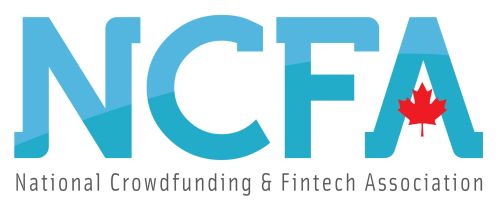News and Insights | Jan 9, 2024

 Image: Unsplah/TR
Image: Unsplah/TRConsumer Protection Coalition Accuses Starbucks of Exploiting Customers with Gift Cards and App Payments
As reported by Fortune, Starbucks has been accused by the Washington Consumer Protection Coalition of exploiting customers through its gift card and app payments to boost corporate profits and inflate executive bonuses by keeping unspent customer balances. The group alleges that Starbucks’ payment platform is designed to encourage customers to leave unspent money on their cards and apps, which over the last five years has led to nearly $900 million in unspent gift card and app money being claimed as corporate revenue by Starbucks.
See: The economics of unused gift cards
The group has called on the state attorney general to investigate whether Starbucks’ policies violate consumer protection laws. The 15 page long complaint describes Starbucks’ mobile app and digital payment cards as akin to an “involuntary subscription.” Customers are required to reload money in $5 increments with a $10 minimum, making it difficult to reach a zero balance.
Starbucks disputes these claims, stating that customers can pay for their purchases with the remaining balance on the app or gift card and then pay the rest in cash at the store. The Starbucks app has become increasingly important for the company, with drive-through and app orders making up the majority of the company’s purchases.
The Commonality of Gift Card ‘Breakage’
The issue highlighted in the Starbucks case, where customers end up with small unspent balances on their gift cards or digital payment apps, is not unique to Starbucks but can be a common issue with many gift cards and digital payment platforms called ‘breakage‘. Companies often count on a certain percentage of gift card balances never being redeemed ‘breakage’, which can become a significant source of revenue. This practice is legal and common in the retail industry.
See: Affirm Launches BNPL Gift Cards & OCC Issues Guidance
Some gift cards have expiration dates or charge inactivity fees, which can also lead to loss of funds for the consumer. Various jurisdictions have consumer protection laws that govern the use of gift cards. These laws can include requirements for clearly stating terms and conditions, limiting expiration dates, and restricting inactivity fees.
Some companies may allow customers to cash out small balances, while others may require the balance to be used in-store.
Fintech Solutions Offer Donation and Investment Options
Several fintech startups and initiatives are addressing the issue of gift card breakage by providing options for consumers to donate or invest their remaining balances. Here are some examples:
- DonateStock: This startup simplifies charitable giving, including the donation of stocks, offering a morally gratifying way to contribute to causes while potentially reducing taxes.
- Jifiti: Jifiti provides services for retailers to handle gifts and gift registries, potentially addressing the issue of unwanted gift cards by offering more flexible gifting options.
- Betterment: An online investment company that features a charitable donation feature, allowing users to gift shares to nonprofits, ensuring full donation utilization.
- Pennies: A UK-based charity that allows consumers to donate small amounts, addressing the issue of small remaining balances on gift cards.
Closing Thought
The issue of gift card breakage, highlighted by the recent Starbucks case, underscores the need for more consumer-friendly solutions in the world of digital payments.
See: Canada’s Top FinTechs: Deloitte’s 2023 Fast 50
Fintech startups are leading the way in offering innovative options for consumers to utilize their remaining balances, whether through charitable donations or investments. These developments not only enhance consumer experience but also contribute to a more socially responsible approach to finance.

 The National Crowdfunding & Fintech Association (NCFA Canada) is a financial innovation ecosystem that provides education, market intelligence, industry stewardship, networking and funding opportunities and services to thousands of community members and works closely with industry, government, partners and affiliates to create a vibrant and innovative fintech and funding industry in Canada. Decentralized and distributed, NCFA is engaged with global stakeholders and helps incubate projects and investment in fintech, alternative finance, crowdfunding, peer-to-peer finance, payments, digital assets and tokens, artificial intelligence, blockchain, cryptocurrency, regtech, and insurtech sectors. Join Canada’s Fintech & Funding Community today FREE! Or become a contributing member and get perks. For more information, please visit: www.ncfacanada.org
The National Crowdfunding & Fintech Association (NCFA Canada) is a financial innovation ecosystem that provides education, market intelligence, industry stewardship, networking and funding opportunities and services to thousands of community members and works closely with industry, government, partners and affiliates to create a vibrant and innovative fintech and funding industry in Canada. Decentralized and distributed, NCFA is engaged with global stakeholders and helps incubate projects and investment in fintech, alternative finance, crowdfunding, peer-to-peer finance, payments, digital assets and tokens, artificial intelligence, blockchain, cryptocurrency, regtech, and insurtech sectors. Join Canada’s Fintech & Funding Community today FREE! Or become a contributing member and get perks. For more information, please visit: www.ncfacanada.org
Related Posts
- SEO Powered Content & PR Distribution. Get Amplified Today.
- PlatoData.Network Vertical Generative Ai. Empower Yourself. Access Here.
- PlatoAiStream. Web3 Intelligence. Knowledge Amplified. Access Here.
- PlatoESG. Carbon, CleanTech, Energy, Environment, Solar, Waste Management. Access Here.
- PlatoHealth. Biotech and Clinical Trials Intelligence. Access Here.
- Source: https://ncfacanada.org/starbucks-controversy-and-fintech-breakage/
- :has
- :is
- :not
- :where
- $UP
- 150
- 200
- 2018
- 2023
- 300
- 50
- 9
- a
- accused
- addressing
- affiliates
- Affirm
- alleges
- allow
- Allowing
- allows
- also
- alternative
- alternative finance
- amounts
- an
- and
- app
- approach
- apps
- ARE
- Arrives
- artificial
- artificial intelligence
- AS
- Assets
- At
- attorney
- Balance
- balances
- BE
- become
- been
- being
- Betterment
- blockchain
- BNPL
- bonuses
- boost
- but
- by
- cache
- called
- CAN
- Canada
- card
- Cards
- case
- Cash
- Cash Out
- causes
- certain
- charge
- Charity
- claimed
- clearly
- closely
- coalition
- Common
- community
- Companies
- company
- Company’s
- conditions
- consumer
- consumer experience
- Consumer Protection
- Consumers
- contribute
- controversy
- Corporate
- create
- Crowdfunding
- cryptocurrency
- customer
- Customers
- Dates
- decentralized
- describes
- designed
- developments
- difficult
- digital
- Digital Assets
- Digital Payment
- Digital Payments
- disputes
- distributed
- donate
- donation
- donations
- Economics
- ecosystem
- Education
- encourage
- end
- engaged
- enhance
- ensuring
- Ether (ETH)
- examples
- executive
- experience
- expiration
- exploiting
- FAST
- Feature
- Features
- Fees
- finance
- financial
- financial innovation
- fintech
- fintech startups
- fintechs
- five
- flexible
- For
- For Consumers
- Fortune
- from
- full
- funding
- funding opportunities
- funds
- get
- gift
- gift cards
- gifts
- Giving
- Global
- govern
- Government
- Group
- guidance
- handle
- Have
- helps
- here
- High
- Highlighted
- Holiday
- http
- HTTPS
- image
- important
- in
- in-Store
- include
- Including
- increasingly
- industry
- information
- initiatives
- Innovation
- innovative
- insights
- Insurtech
- Intelligence
- Invest
- investigate
- investment
- Investments
- issue
- issues
- IT
- ITS
- Jan
- jpg
- jurisdictions
- keeping
- Last
- launches
- Laws
- lead
- leading
- Leave
- Led
- Legal
- limiting
- Long
- loss
- Majority
- Making
- many
- Market
- max-width
- May..
- member
- Members
- minimum
- Mobile
- Mobile app
- money
- more
- nearly
- Need
- networking
- never
- nonprofits
- OCC
- of
- offer
- offering
- often
- on
- online
- only
- opportunities
- Options
- or
- orders
- Others
- out
- over
- page
- partners
- Pay
- payment
- payments
- peer to peer
- percentage
- perks
- platform
- Platforms
- plato
- Plato Data Intelligence
- PlatoData
- please
- policies
- potentially
- practice
- profits
- projects
- protection
- provides
- providing
- purchases
- reach
- recent
- reducing
- registries
- Regtech
- remaining
- Reported
- require
- required
- Requirements
- responsible
- REST
- restricting
- retail
- retail industry
- retailers
- revenue
- s
- Sectors
- Services
- Shares
- Shopping
- significant
- simplifies
- small
- socially
- Solutions
- some
- Source
- stakeholders
- starbucks
- startup
- Startups
- State
- stating
- Stewardship
- Stocks
- store
- subscription
- Taxes
- terms
- terms and conditions
- that
- The
- The State
- the world
- their
- then
- These
- this
- thousands
- Through
- to
- today
- Tokens
- top
- underscores
- unique
- unused
- unwanted
- use
- used
- users
- utilization
- utilize
- various
- vibrant
- Visit
- Way..
- whether
- which
- while
- with
- works
- world
- years
- zephyrnet
- zero











